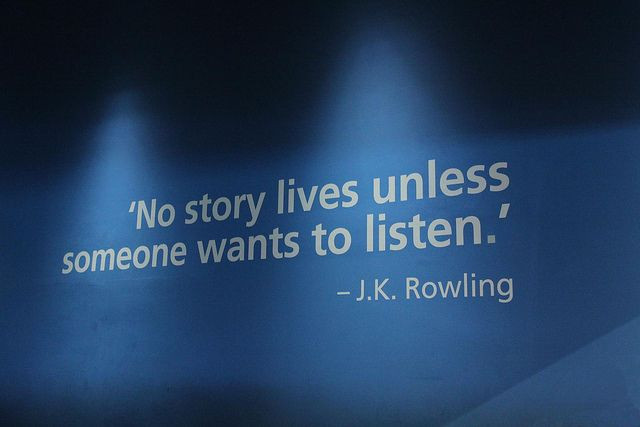Harry Potter Study Attempts To Show What Happens To Our Brains When We Read And Why Some Books Are So Popular

What makes some books so hard to put down? That’s exactly what researchers set out to find in their recent study, which they hope to be the first step toward figuring out why we love to read. In looking at what happened to study participants' brains when they read Harry Potter books, researchers were able to get a quick glimpse at how fiction affects us physically.
The Harry Potter series is arguably one of the most popular in the history of mankind. Seriously, this series has broken book sales in nearly every continent on the planet. Seven of the eight books in the series managed to make it into the UK’s top 10 best-selling books of all time, according to The Guardian. The sixth book in the series, Harry Potter and the Half-Blood Prince, broke U.S. book sales records when it managed to sell 6.9 million copies in its first 24 hours, NBC News reported. Although the storyline behind the Harry Potter series is undoubtably strong, researchers from Free University of Berlin wanted to know what happened on a neurological level to make these books so unbelievably popular.
In order to conduct their research, the scientists asked volunteers to enter a brain scanner and read passages of Harry Potter about four lines long, FastCoDesign reported. The passages were chosen for the different emotions they evoked in readers. For example, some passages were fear-inducing, while others were more neutral. A separate group of participants rated each passage on how immersive they found it to be.
Results showed that the fearful passages were rated higher for immersion than passages deemed to be more neutral. The neuroscience backed this up as well. The middle cingulate gyrus area of the brain, considered the brain’s empathy network, was more stimulated in the fearful passages than it was in the neutral ones. According to the study, the researchers believe their results support a theory named the Fiction Feeling Hypothesis, which speculates the empathy network of the brain is more activated during emotional moments in a book, most notably in sections describing negative, arousing, or suspenseful scenes.

While this finding is interesting, you’re not alone if you feel it’s used a whole lot of fancy technology to find something that any avid reader could simply tell you: suspense sells.
The Neurotic also points to neurological discrepancies in the study, such as a lack of evidence showing the same results in other empathy regions of the brain. FastCoDesign journalist Eric Jaffe highlights that the entire study is based on brain activity with volunteers reading only four lines, while in the real world it takes much longer before a reader considers himself to be immersed in a story.
What the researchers fail to touch upon is how an individual’s personal preference largely influences his likelihood to finish a book, but more importantly, how book sales are largely based on hype. There is most probably no “secret formula” to writing a best-selling novel, but at the very least this study shows that reading is an excellent way to stimulate your brain.
Source: Hsu CT, Conrad M, Jacobs AM. Fiction feelings in Harry Potter: haemodynamic response in the mid-cingulate cortex correlates with immersive reading experience. Neuroreport. 2014.



























